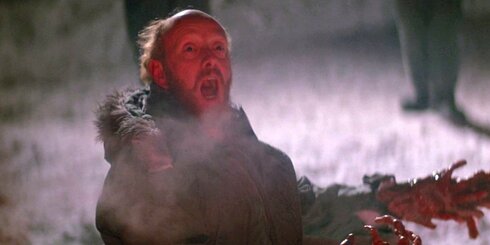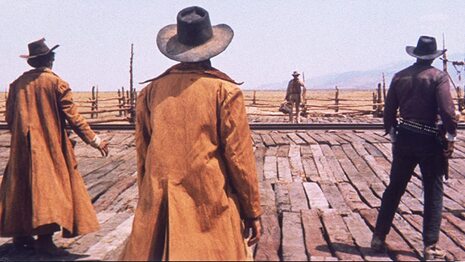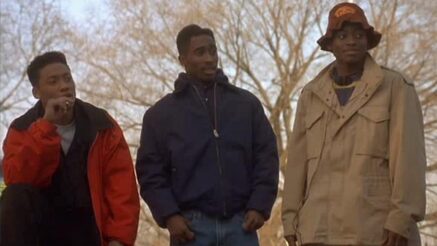A- | A team of Antarctic researchers encounter a parasitic organism that takes over its host. Directed by John Carpenter Starring Kurt Russell, Wilford Brimley, and Keith David Review by Jon Kissel |

 John Carpenter’s The Thing, a body horror paranoid thriller with a bleak ending, could only be pitched more directly at this viewer if it was set during the French Revolution. This is a staple of 80’s genre cinema and remains thoroughly watchable almost 40 years after its release. After several viewings, it still prompts winces and cackles, and remains a great film to watch in a group, peering over at the uninitiated to see how they react at certain perfectly pitched surprises. A commercial and critical flop in its own times, The Thing has enjoyed a reevaluation as a beloved cult classic and spawned imitators in film and video games. Carpenter doesn’t sustain perfection in the run-up to a near-perfect ending, but this is still an all-timer horror movie.
0 Comments
 In Sergio Leone’s final film set in the American West, he immediately communicates something vital to the setting and to the genre. In the first scene of Once Upon a Time in the West, a trio of goons terrorize a ticket taker and stuff him in a closet while they wait for their prey. The frontier exists in America as this romantic place where society can be reinvented and started anew by anyone with the foresight and will to make their way, but some rules and customs exist for a reason, like the free exchange of goods and services or the entering into a personal transaction with good faith. If everyone in an unsettled environment is remaking the world based on strength of will, the will to dominate will win out. Our introductory goons, in service to another goon who himself is in service to a robber baron railroad tycoon, are imbued with the power to do whatever they want. If they wanted to kill the ticket taker, no one would stop them and no one would pursue them. Once Upon a Time in the West ultimately tells a happy story of the forces of domination being thwarted and the promise of the frontier being fulfilled, but it comes within a pervasive package of corruption that implies this outcome is a rare one.
 Spike Lee’s been a professor at NYU for going on three decades and the boundaries between his teaching job and his directing job fully melt down in Da 5 Bloods. Lee treats his 24th film like it’s his first, greedily cramming it with endless references and ideas, both contemporary and historical, at the cost of realistic characters having human conversations. Uneven throughout its entirety and within individual scenes, this is one of my least favorite works from a director with a lot of greatness to his name. I just wish he’d get an apparent case of late-onset ADHD under control.
 Into the canon of movies that could only be directed by a black person, we welcome Juice. This film requires a level of lived-in experience, sure, but it also takes such wild and potentially stereotypic swings with its characters, that a white director taking those same swings would generate a lot of controversy. As the directorial debut of Ernest Dickerson, Spike Lee’s former classmate and cinematographer, Juice starts as one movie and becomes something wildly different. Though both halves work independent of each other, the connective thread uniting the two is frayed and weak. Perhaps most notable for serving as the acting debut of Tupac Shakur, Juice contains a lot of promise both in front of and behind the camera, but it needed the most work on the page. |
AuthorsJUST SOME IDIOTS GIVING SURPRISINGLY AVERAGE MOVIE REVIEWS. Categories
All
Archives
April 2023
Click to set custom HTML
|